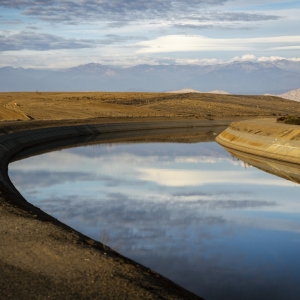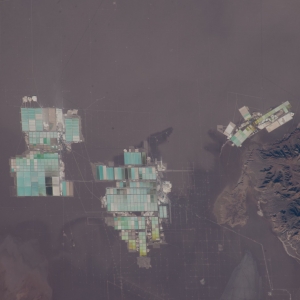The Stream, January 14, 2022: Intense Bursts of Rain Can Decrease Economic Growth in World’s Wealthiest Countries, Research Finds
YOUR GLOBAL RUNDOWN
- Officials in Yemen say recent airstrikes by Saudi Arabian forces targeted civilian water supplies.
- Heavy rain displaces a Brazilian indigenous tribe.
- New research finds that short, heavy bursts of rainfall can decrease economic production globally.
- Nebraska and Colorado officials squabble over water rights.
A gas exploration project in an Australia river basin may have immense consequences for global CO2 emission goals.
“Even if there wasn’t a leakage of methane and even if the gas was burnt somewhere else so that it didn’t count against Australia’s emissions targets, there’d be a significant release associated with getting the gas out of the ground.” – Queensland academic Ian Lowe. A new report has found that a project to extract gas from the Lake Eyre basin in Queensland, Australia could stop Australia from meeting its emission targets. Gas resources in this area have unusually high concentrations of CO2, and could generate anywhere between 16 million and 199 million tons of CO2 a year if the project is allowed to move forward.
In Recent Water News
In Case You Missed It:
Who Should Pay to Fix California’s Sunken Canals? – Agribusiness and its proponents say repairs will benefit disadvantaged towns. Those residents disagree. This article was originally published by High Country News as part of the Tapped Out collaboration, which reports on power and water justice in the rural American West.
The Next Source of Trouble for Great Lakes Fish Populations: Tires — A tire chemical that was poisoning fish out West has been discovered in two Lake Ontario tributaries. This article was originally published by Great Lakes Now as part of the Great Lakes News Collaboration, which aims to elevate discussion, amplify the voice of Michigan residents and produce action that protects the region’s waters for future generations.
Saudi Airstrikes Target Civilian Water Supplies, Yemeni Officials Say
Officials in Yemen are calling recent Saudi airstrikes that destroyed water supplies for tens of thousands of people a war crime. Saudi warplanes conducted three airstrikes late Tuesday night, targeting water facilities in the Sa’ada Province. Yemen’s deputy minister of Water and Environment Hanin al-Darib stressed that drinking water project was a civilian facility and asked for aid from international organizations.
Today’s Top Water Stories, Told In Numbers
50 INDIGENOUS TRIBE MEMBERS
After a dam collapse forced some indigenous people in Brazil to move their homes to higher ground three years ago, recent flooding on the Paraopeba River has once again displaced members of the Pataxo-Hahahae tribe. Heavy rain has persisted over the last two weeks in the southeastern state of Minas Gerais. So far, more than 20 people have died, and Pataxo-Hahahae members are taking shelter in a local school as their community downstream bears the brunt of the storms.
77 COUNTRIES
New research from the Potsdam Institute for Climate Impact Research in Germany found that intense, daily rainfall can decrease economic growth, especially in wealthy, industrialized nations. The study analyzed 40 years of data from more than 1,500 regions in 77 countries, finding that short, intense periods of rain can lead to flooding, destroy infrastructure, and disrupt production and the supply chain. Climatologists have said that as global climate change worsens, heavy rain and flooding events will become more common.
On the Radar
Days after Nebraska officials announced a plan to claim access to land in Colorado to build a $500 million canal and reservoir, Colorado Gov. Jared Polis said he will “protect and aggressively assert” his state’s water rights. Nebraska’s announcement came amid a report released from Colorado officials announcing 282 new water projects within the South Platte River Basin. Nebraska Gov. Pete Ricketts and the state attorney general Doug Peterson warned those projects could threaten nearly all the state’s water supplies.
Jane is a Communications Associate for Circle of Blue. She writes The Stream and has covered domestic and international water issues for Circle of Blue. She is a recent graduate of Grand Valley State University, where she studied Multimedia Journalism and Women, Gender and Sexuality Studies. During her time at Grand Valley, she was the host of the Community Service Learning Center podcast Be the Change. Currently based in Grand Rapids, Michigan, Jane enjoys listening to music, reading and spending time outdoors.







Leave a Reply
Want to join the discussion?Feel free to contribute!